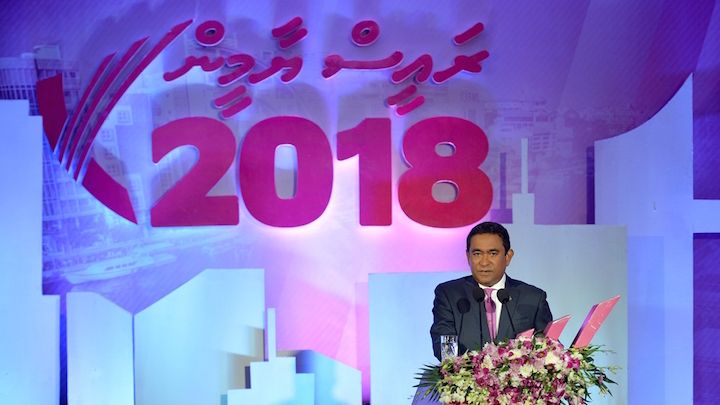Yameen defends death penalty

20 Mar 2016, 9:00 AM
President Abdulla Yameen defended last night the government’s decision to reintroduce the death penalty, contending that enforcing capital punishment for murder is necessary to ensure public safety and maintain law and order.
Speaking at the closing ceremony of a three-day symposium held in Malé to train campaign leaders for his 2018 re-election bid, Yameen slammed international criticism the Maldives faced after his administration ended a six-decade moratorium on the death penalty in 2014.
“When some people raise questions about it, what I want to say is, why not stop our government from doing it? Not by tying our hands, but help us solve the reasons that cause [violence],” he said.
“But it isn’t easy for them to talk about that or give us the money or facilitate resources for us.”
Become a member
Get full access to our archive and personalise your experience.
Already a member?
Discussion
No comments yet. Be the first to share your thoughts!
No comments yet. Be the first to join the conversation!
Join the Conversation
Sign in to share your thoughts under an alias and take part in the discussion. Independent journalism thrives on open, respectful debate — your voice matters.




